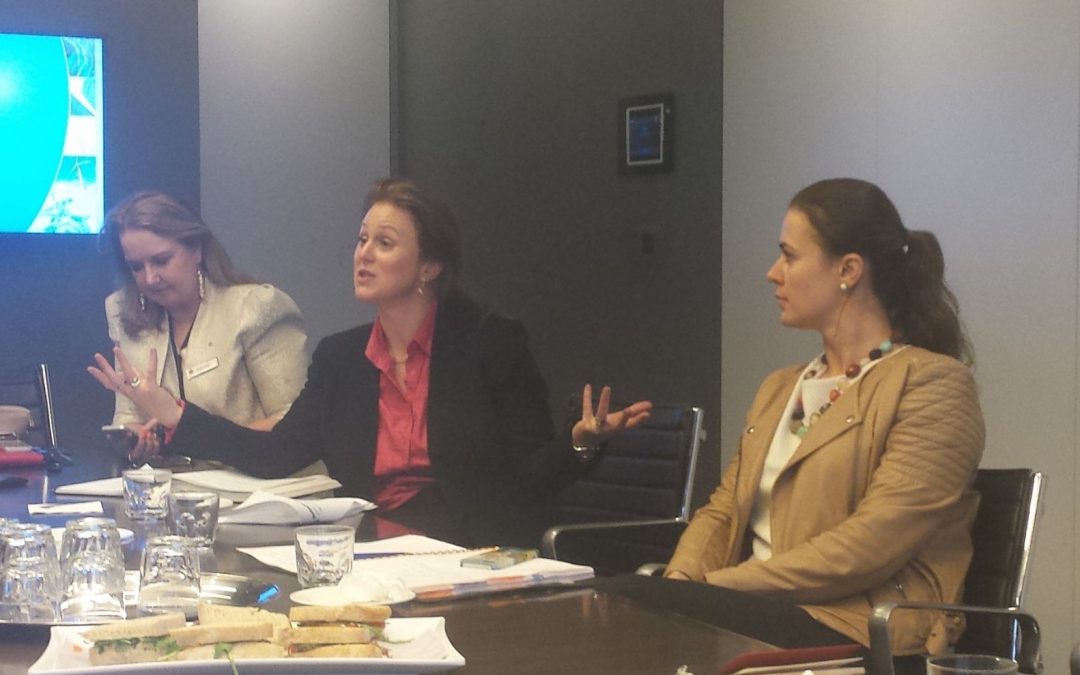Leadership at all levels – Creating a pro bono culture in engineering
A meeting of the Community of Practice for Pro Bono Systems.
By Sarah Matthee, Former EWB Corporate Coordinator
Last week, a group of twenty engineering sector representatives from around Australia dialled into the latest Pro Bono Systems Community of Practice meeting to share their knowledge around pro bono systems.
Everyone knows that lawyers are known for pro bono work. As a university student studying law and engineering, I often wondered why the engineering sector, with its incredibly valuable skills for society, was not similarly lauded for its pro bono contributions.
And whilst some engineers may joke that lawyers are very good at talking about what they do(!), the truth is that pro bono thinking is not institutionalised in the engineering sector like it is in the legal sector.
For example:
- The engineering sector does not have analogous “pro bono conditions” where Local, State or Federal Governments require that a firm commits to pro bono activities to the value of 10-15% of the Government fees.
- The engineering sector does not have an aspirational target where firms commit to 35 hours of pro bono work per engineer or built environment professional, which is measured, collated and publicly disseminated. In the 2014-15 financial year, the 11,000 legal professionals covered by the target reported a total of over 370,000 hours of pro bono legal work.
- The engineering education sector does not profile pro bono activities, nor does it ingrain a culture of ‘giving back’ when compared to what is done throughout the legal education sector.
- There is an Australian Pro Bono Centre, which focuses entirely on the “development, expansion and coordination of pro bono services” in the legal sector. In the engineering sector, this Pro Bono Centre has not existed.
So, EWB Connect was developed. A program run by Engineers Without Borders Australia with the aim of facilitating pro bono connections between community organisations and the engineering sector. EWB Connect was, borne out of the energy of representatives across the industry, to:
- Achieve direct social impact by connecting community organisations with engineering and other technically specialised organisations that provide services on a pro bono basis
- Facilitate knowledge sharing and training in effective pro bono practice
- Communicate and celebrate pro bono work across multiple sectors, and
- Work across sectors to contribute to public policy and provide leadership about the role of pro bono engineering.
After 18 months of operation, EWB Connect has successfully linked ten engineering or built environment businesses to twelve community pro bono projects around Australia. Currently, there are thirty-five community projects currently in scoping and assessment for future consideration.
Alongside this, EWB Connect has participated in the formation of a Community of Practice for industry representatives around Pro Bono Systems. This group shares stories of success, considers mutual aims and discusses internal systems such as pro bono job codes and the effect of ‘utilization’ classifications on the prioritisation of pro bono activities.
The Pro Bono Systems: Community of Practice meeting
At the meeting, representatives from Abergeldie, AECOM, Arup, GHD, Engineers Australia, Engineers Without Borders Australia, Metrotrains and WSP-Parsons Brinckerhoff shared stories of their pro bono successes and challenges.
With heads nodding around the tables in Melbourne and Sydney, AECOM and WSP-PB portrayed how pro bono activities were supported in their companies. Lizzie Brown, EWB Connect’s program Lead, talked to a variety of social impact measurement methodologies and the benefits that would come from the aggregation of data across the industry.
The representatives at the meeting were a cross-section of the profession – both in subject-matter expertise, and experience level – from industry groups, consultancies and constructors, and young professionals through to senior executives.
On display at this meeting was leadership at all levels of the sector – a true representation that building a culture of pro bono thinking throughout the profession requires engaging individuals across businesses – strategies that engage both the executives, and wider employee pool. Activity that pushes bottom-up, and top-down. For example, executive led pro bono targets wouldn’t be as effective without employee interest and involvement. At the same time, an employee’s involvement in pro bono is much more difficult without higher level management support.
All at the meeting are making waves in their companies as pro bono champions, regardless of their seniority or position. All contributed their time and opinions. All were heard. All perspectives were valuable and all are pro bono leaders.
Thanks to GHD for hosting the meeting, and Marni Oaten (WorleyParsons), and John French for co-chairing.
Read more about EWB Connect.


